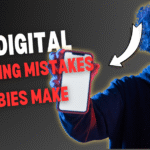The internet is on the brink of yet another evolution—entering Web 3.0, which represents a major leap forward in how we interact with the digital realm. While Web 1.0 was defined by its unchanging nature and Web 2.0 introduced elements of social engagement, Web 3.0 focuses on empowering users, safeguarding privacy, fostering decentralization, and facilitating interactions that operate independently of trust. This signifies not just an improvement but a fundamentally new experience within the online world.
So, how exactly can Web 3.0 enhance your digital life? Here are the primary ways this development is transforming the web and restoring control to its users.

1. Authentic Data Control and Privacy
In the current landscape of Web 2.0, your personal information resides on centralized servers operated by corporations such as Google, Facebook, and Amazon. These entities capitalize on your online activities while frequently compromising your privacy.
Web 3.0 brings forth a decentralized internet that empowers you to take charge of your data. Through blockchain technology, individuals can possess and oversee their information independently without depending on centralized organizations. Picture accessing various websites with your secure digital identity—without having to sacrifice personal information at each turn.
2. Decentralized Applications (dApps)
Are you fed up with applications that exploit your data or unexpectedly alter their terms of service? Introducing dApps—decentralized applications functioning on peer-to-peer networks such as Ethereum or Solana. These applications are transparent, open-source, and not subject to shutdown by a central authority.
Whether it’s in finance (DeFi), social media, or gaming, dApps enable online interactions without intermediaries, resulting in a smoother, safer, and more equitable internet experience for users.
3. Improved Digital Identity
Wave goodbye to the hassle of remembering multiple usernames and passwords. Web 3.0 introduces an innovative approach to digital identity through cryptographic wallets and tokens. You can utilize one secure wallet (like MetaMask) across different platforms without the need for registration or sharing your email address.
This unified digital identity enhances privacy protections, minimizes fraud risks, and simplifies access to various services—ideal for creating a more seamless internet experience.
4. Trustless Transactions Powered by Smart Contracts
At the heart of Web 3.0 lies the smart contract—a form of self-executing code initiated when predetermined conditions are satisfied. This innovation removes intermediaries from various agreements, whether for hiring freelancers, leasing digital assets, or executing cryptocurrency transfers.
With blockchain technology at play, these transactions are not only transparent and verifiable but also immutable. It represents a significant advancement in trust and automation.
5. Empowering Creators through Content Monetization
One of the most notable advantages of Web 3.0 is its transformative impact on content creators. Instead of being dependent on ad-based models or intermediary platforms, creators now have the opportunity to monetize their creations via NFTs, small cryptocurrency payments, or creator tokens.
This shift allows for increased direct income, enhanced control over audiences, and authentic digital ownership. Whether you’re an artist, author, or video producer, Web 3.0 offers unprecedented levels of freedom.
6. Improved Search Capabilities through the Semantic Web
Unlike the keyword-driven frameworks of Web 2.0, Web 3.0 incorporates semantic search alongside AI-enhanced understanding. This evolution enables search engines and virtual assistants to truly comprehend the context and purpose behind your queries.
No more enduring through countless irrelevant links; you can obtain precise responses more rapidly, resulting in a more intelligent internet navigation experience every time.
7. Secure and Transparent Environment
Thanks to blockchain’s unchangeable nature, all transactions and data exchanges within Web 3.0 are thoroughly recorded. This promotes a clear digital environment that is exceptionally hard to breach or manipulate.
Whether utilized in finance, healthcare, or supply chain systems, users can trust that their data remains secure and resistant to alterations—marking a substantial enhancement in security for all internet users.
8. Inter-platform Interoperability
Web 3.0 platforms are designed with the concept of interoperability at their core. This allows users to transition assets, data, and identities effortlessly between applications and platforms, rather than being confined to the isolated environments of conventional apps (such as Facebook or iOS).
This interconnected setting simplifies how individuals navigate their digital experiences while offering a cohesive and adaptable internet journey.
9. Community Governance and Token-Driven Rewards
In Web 3.0, users take on more than just consumer roles; they become stakeholders in the ecosystem. Communities can utilize governance tokens to influence decisions concerning the trajectory of their preferred platforms. Whether it’s determining product enhancements or moderating content, authority resides within the community.
Additionally, token-based incentives grant users rewards for their involvement, such as contributing bandwidth, storage resources, or participating in community-focused initiatives.
10. Liberation from Centralized Authority
One of the most significant aspects of Web 3.0 is its liberation from centralized authority. In an era marked by censorship, algorithm manipulation, and monopolistic technology companies, Web 3.0 empowers users by restoring their freedom and independence.
Thanks to decentralized governance, no single organization has dominion over the internet. You are free to express yourself, conduct transactions, and create content without the looming threat of being unfairly shadow-banned, demonetized, or deplatformed.
Concluding Thoughts
Web 3.0 transcends mere buzz—it represents the future landscape of the web. From ensuring data privacy and protecting identities to fostering smart automation and empowering creators, Web 3.0 is radically transforming our online experiences.
As this decentralized version of the internet progresses, it’s essential to keep yourself updated and start exploring dApps, digital wallets, and blockchain technologies. The sooner you embrace these changes, the more enhanced your experience will be in this new generation of web innovation.









